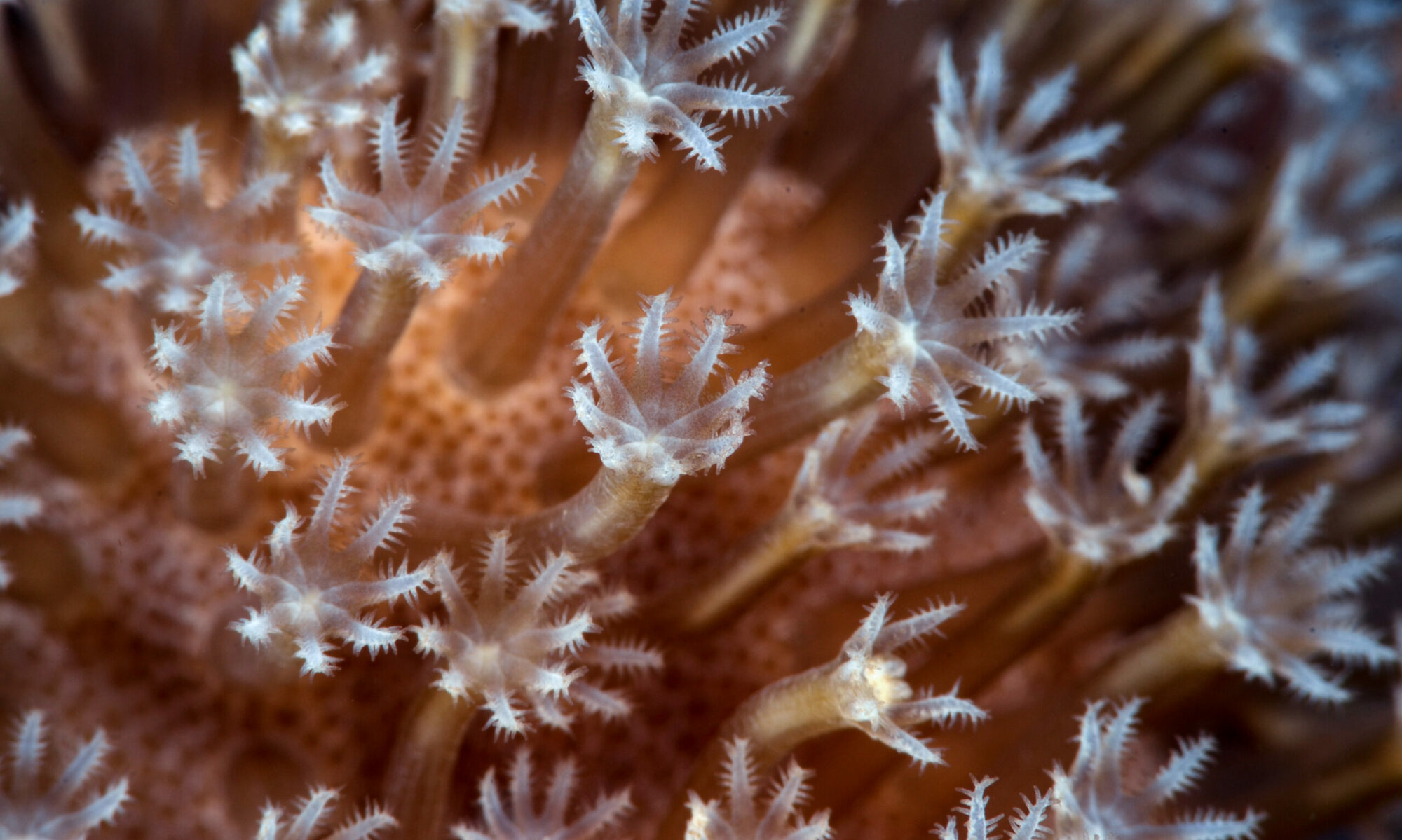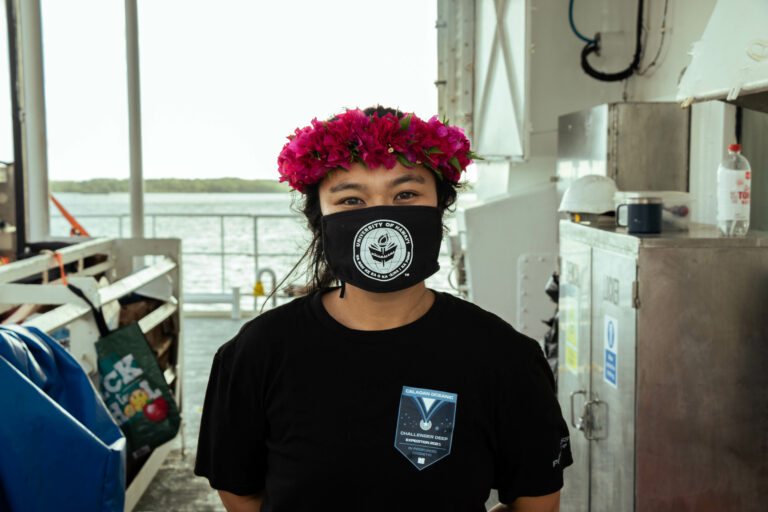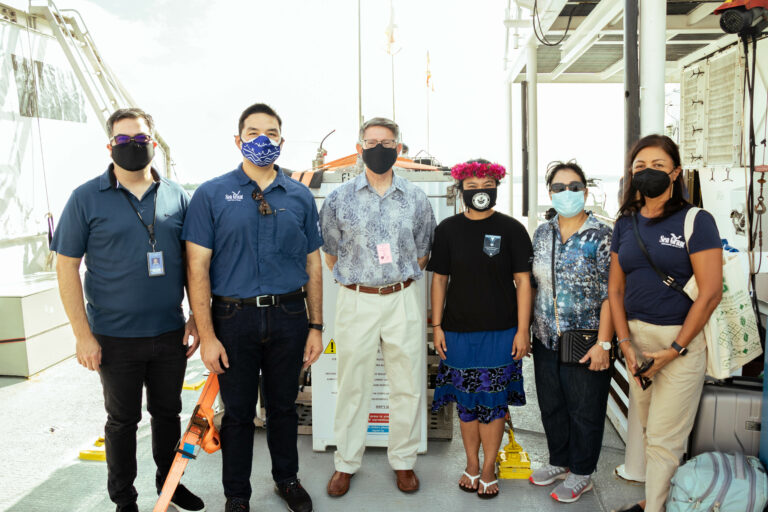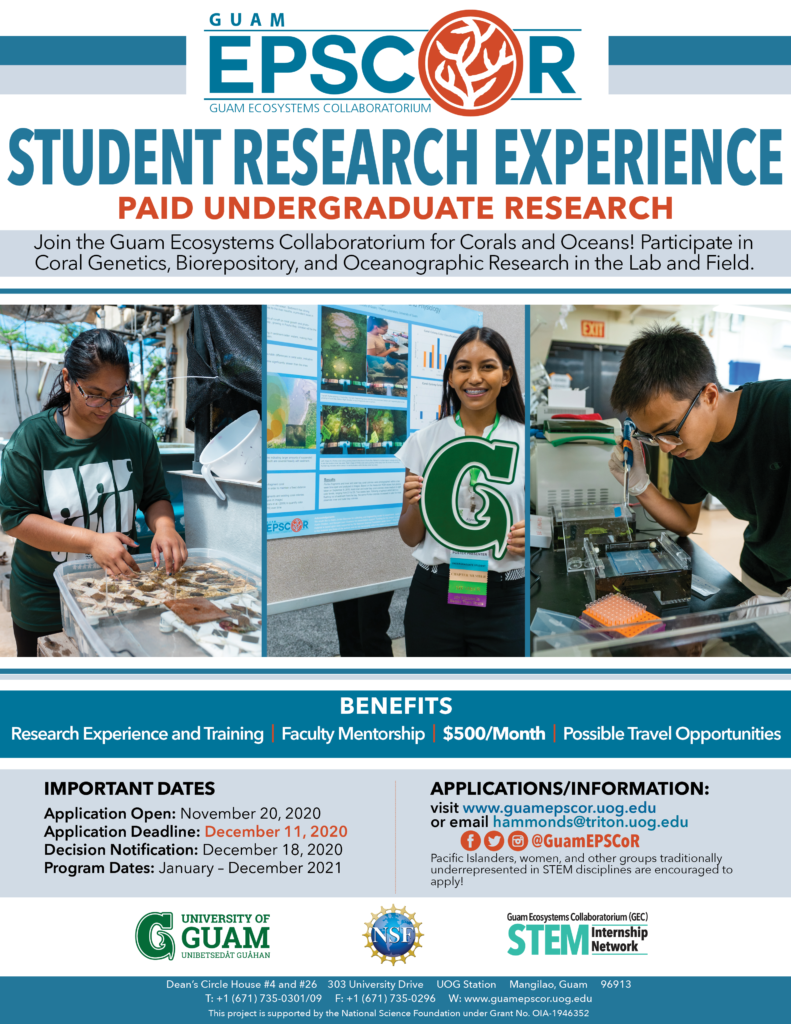


A study by University of Guam researchers has found that shade can mitigate the effects of heat stress on corals. The study, which was funded by the university’s National Science Foundation EPSCoR grant, was published in February in the peer-reviewed Marine Biology Research journal.
“We wanted to see what role light has in coral bleaching,” said UOG Assistant Professor and EPSCoR Co-PI Bastian Bentlage, the supervisor and co-author of the study. “Usually, people talk about temperature as a cause for bleaching, but we show that both light and temperature work together.
Previous UOG research led by EPSCoR Lead Researcher Laurie J. Raymundo found that more than one-third of all coral reefs in Guam were killed from 2013 to 2017 over the course of multiple bleaching events. Coral bleaching is the process in which corals stressed by environmental changes expel the essential symbiotic algae that live in their tissues, causing them to turn white and often die.
This latest study examined the resilience of staghorn corals (Acropora cf. pulchra) in heightened seawater temperatures. This species of coral is one of Guam’s dominant reef-builders, and its habitats experience temperatures up to 97 degrees Fahrenheit during the hottest months of the year, leaving it vulnerable to bleaching episodes and population decline.
A team of researchers — including lead author Justin T. Berg, a UOG graduate student and EPSCoR Graduate Research Assistant (GRA) studying biology; Charlotte M. David, an undergraduate student from the University of Plymouth (England), and Melissa Gabriel, a UOG graduate student and EPSCoR GRA studying environmental science — took coral samples from the Hagåtña reef flat and examined their health in the UOG Marine Laboratory under normal and elevated temperatures.
“One group was subjected to consistent baseline temperatures observed on Guam’s reef flats,” Bentlage said, “and another was set to temperatures that are projected to become the new normal over the next couple of decades.”
The researchers found that the corals took three weeks to recover from a week-long heat stress event. The experiment was then replicated to see how the corals would react if they were given shade while subjected to warmer temperatures.
“We found that when we put the shading over coral with increased seawater temperatures, it greatly increased photosynthetic yield of the symbiotic algae. Shade made a huge difference for coral health when you have high temperatures,” Berg said.
Implications for reef management
Shading is a practice already used in coral nurseries, Bentlage said, but it may not be practical to shade whole reefs in the ocean. Future studies can look into practical ways to reduce the impact of light on corals, particularly as they recover from periods of elevated temperatures.
“We saw the corals recover rather slowly,” Berg said. “The length of recovery indicates that corals are vulnerable during this time and management efforts may be particularly necessary during this period to reduce coral mortality.”
Berg said the new knowledge may also help inform the best locations to successfully outplant corals.
“For example, slightly turbid waters could provide some shading to corals, making them less likely to bleach during periods of elevated sea surface temperatures,” Berg said.




















